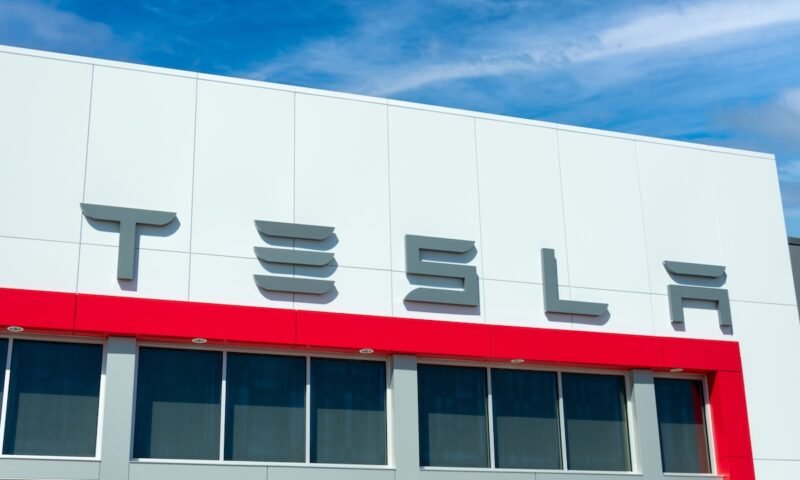

Key points
- Tesla investors are threatening to divest millions of dollars in assets from Charles Schwab after several Schwab ETFs voted against Elon Musk’s proposed trillion-dollar Tesla pay package.
- The votes put Schwab at odds with some individual shareholders who credit Tesla’s board and Elon Musk for exceptional returns.
- Some high-net-worth Tesla investors say they have already begun transferring accounts to rival brokerages, including Robinhood, in protest.
Charles Schwab is facing growing backlash from a powerful group of Tesla (NSQ:TSLA) investors who say the brokerage firm’s proxy votes conflict with shareholder interests. The controversy stems from a vote by several of the company’s exchange-traded funds (ETFs) — which represent nearly seven million Tesla shares — against Tesla Proposed CEO compensation package For Elon Musk.
The pay plan, potentially worth $1 trillion over the next decade, is designed to retain Musk through a performance-based stock award. Tesla’s board argued that the plan was necessary to keep Musk focused on the company as it pursues ambitious goals, including producing 20 million vehicles annually and developing self-driving “robot taxis” and humanoid robots.
But Schwab’s ETFs (including Schwab U.S. Broad Market Fund, Schwab U.S. Large Market Fund, and Schwab U.S. Broad Market Core Fund) They voted to reject the package.
This decision sparked an open revolt among a segment of Tesla’s retail investor base, many of whom are active on social media and organizing around the issue.
We reached out to Schwab for comment on this story, and as of publication, they have not responded. We will update the story if we receive more information.
Would you like to save this?
Investors move their accounts
Jason DeBolt, who has more than 240,000 followers on X (formerly Twitter), accused Schwab of “voting against one of the most successful corporate boards in history.” He claims that Schwab’s ETFs collectively represent a position of about seven million Tesla shares, and that his community of followers could control “tens or even hundreds of millions” of dollars in Tesla holdings.
Hey @Charles Schwab -I need to speak with someone from Schwab Private Wealth Services this week. Please reach out via email, mobile app message center, phone or X DM.
Here’s why this is urgent: At least 6 of your ETFs (about 7 million… $TSLA Shares) voted against… https://t.co/uSgPWnfTFc-Jason Debolt ⚡️ (@jasondebolt) November 3, 2025
“If Schwab’s proxy voting policies do not reflect shareholder interests, I and my followers will move tens of millions of Tesla shares to a broker that does,” he wrote.
This feeling actually translates into action. At least one Tesla investor has publicly confirmed the transfer of $1 million in retirement assets from Schwab to Robinhood, citing both ETF votes and Robinhood’s 3% transfer bonus for incoming retirement accounts. Others pledged to follow suit if Schwab does not change course before future votes.
As promised, I moved my Roth account (and other retirement accounts that hold $1M worth of TSLA) from @Charles Schwab And in @RobinhoodApp.
If Schwab does not vote in line with Tesla’s board on their ETFs, I will continue to move my taxable portfolio.
Robinhood is… pic.twitter.com/YqTn5QQFU4– Kevin Chau (@kchau) November 4, 2025
Schwab’s credit dilemma
At the heart of the dispute is a question that has long divided Wall Street: how ETFs should exercise their voting power.
As trustees of the funds, companies like Schwab cast proxy votes on behalf of the ETF’s shareholders. These votes are guided by the company’s internal proxy voting policies, and are often informed by external consultants such as Glass Lewis or Institutional Shareholder Services (ISS).
Schwab’s proxy guidelines generally emphasize board independence, transparency, and alignment with pay-for-performance. According to a report by Reuters. Glass Lewis said Musk’s package raises concerns About corporate governance and concentration of power, despite Tesla’s strong returns.
Schwab’s defenders may argue that this approach reflects a consistent governance philosophy and is not a judgment on Tesla’s performance. However, individual shareholders – especially those with concentrated holdings in Tesla – view the issue differently. For them, the vote represents a betrayal of a company that has generated extraordinary returns over the long term — more than 200% in the past five years.

The challenge for Schwab is that ETFs collect votes from millions of investors with different priorities. Some are concerned with managerial discipline while others may only be concerned with financial performance. Schwab’s fiduciary duty requires that it take into account the collective interests of all shareholders, not just the most vocal segment.
However, the backlash illustrates how modern proxy voting can create unexpected reputational risks for large asset managers, especially when social media amplifies shareholder movements in real time.
Impact on Schwab and the broader market
While there is no public data yet on the volume of account transfers from Schwab, the growing online campaign could test investor loyalty at a time when competition among investing apps is heating up.
For example, Robinhood is aggressively courting disaffected investors with switching incentives and a user base that leans toward retail traders familiar with Tesla’s community culture.
Fidelity and Vanguard, which also run Tesla-heavy funds, have so far avoided similar backlash — though both have faced questions about their voting policies in recent years.
For Schwab, which manages more than $9 trillion in client assets, even a modest outflow of investors focused on Tesla may not be financially significant. It remains one of the largest asset management companies in the world.
But in terms of reputation, it highlights a delicate tension: how to balance responsible management with the expectations of motivated individual shareholders who view corporate leadership through a performance lens rather than a governance lens.
What investors should know
Investors should be aware that when they hold Tesla (or any stock) through an ETF or mutual fund, They do not directly control how these shares are voted. The Fund Manager makes those decisions pursuant to its proxy voting policies.
Those who wish to vote directly on corporate matters, such as executive pay packages, need to hold shares directly in a brokerage account in their own name rather than through pooled funds.
Retail investors who want their votes to be counted in line with their personal opinions may need to consider direct ownership of shares versus investing in an ETF or fund.
Don’t miss these other stories:
Best Passive Income Ideas for Building Wealth in 2025
Best Brokerage and Investment Bonuses Offers in November 2025
CDs Will Mature $1 Trillion in 2025: Here’s What You Need to Know
Editor: Colin Greaves
The post Schwab Faces Backlash Over ETF Vote Against Elon Musk’s Tesla Compensation appeared first on The College Investor.



